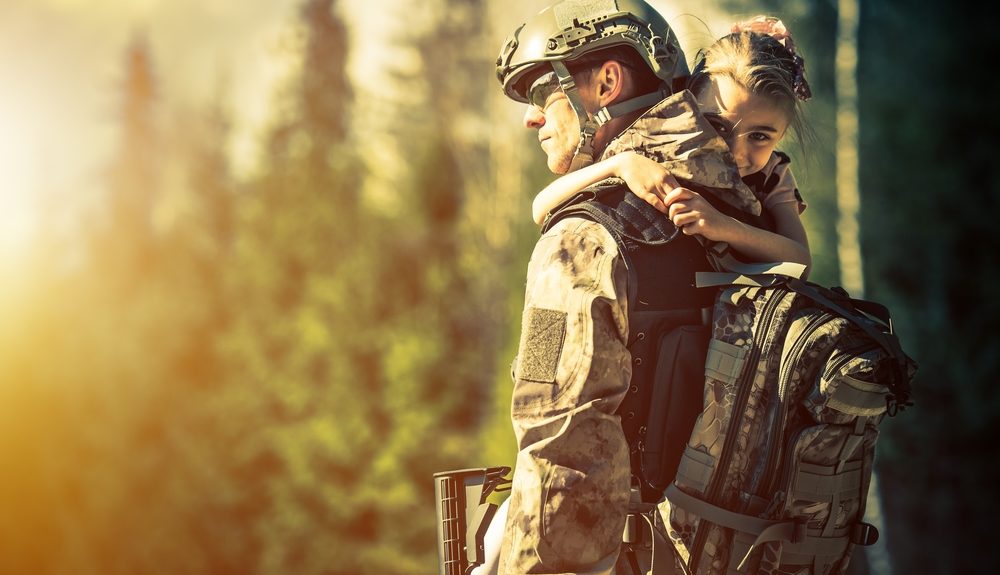For direct online access to VA benefits and resources, create an account here.
A critical element in how veterans battle post-traumatic stress disorder (PTSD) is how they integrate back into their family dynamic when they return home. Homecoming can be exciting, but it’s important for families to have the knowledge and resources necessary to help their loved one handle potential hardships on the horizon.
Common Expectations
– Families may expect everything to go ‘back to normal’ after a vet comes back from deployment, but the family dynamic has changed since they left. However, with some adjustment, it can be just a great as before – just different.
– Families tend to want to show off their loved on when they come back at parties, barbecues, etc. It is important to check with the veteran to make sure they are ready for that. For a vet suffering from PTSD, it could be overstimulating and force them to have uncomfortable conversations
Resources
First, apply for VA healthcare, and then contact their VA primary care provider. They can message them directly online here.
– Symptoms of PTSD: The VA provides a list of PTSD signs, that can be helpful for both veterans and their families in identifying whether or not they need treatment, counseling, or other services.
– National Center for PTSD: This VA program offers information about PTSD and how family members can help their loved one get the help they need. On this page, family members are given a guide about how to bring up the topic of PTSD with their loved on and talk effectively about treatment options.
– VA treatment for PTSD: The VA provides many options for PTSD because each veteran might have different, individual needs. The VA also offers family therapy, which could be a good option for a veteran who wants their family to be involved with their treatment and recovery.
– VA benefits for PTSD: Veterans with PTSD from combat can qualify for disability benefits and compensation. This can potentially relieve stress on the family and provide overall support.
Veterans can now make disability claims online, and track their progress in receiving benefits.
– VA Caregiver Support: For a veteran’s spouse or family member is providing support due to their PTSD, there are service available to help them cope with the responsibility and give the best care possible.
Strategies
– Communication. Talk about triggers or situations that make the veteran uncomfortable. Being mindful at what information he/she is willing to share about their war experience.
– Look out for signs of PTSD, trauma, or depression. The most important part during this entire process is to monitor issues before they become critical.
– Discuss openly about family roles and responsibilities. The dynamic might be different and it’s okay if time needs to be taken to figure out where everyone fits in again.
– Remember this isn’t a permanent situation! If certain issues continue to arise, the VA has treatments and programs available to help with the transition.




































